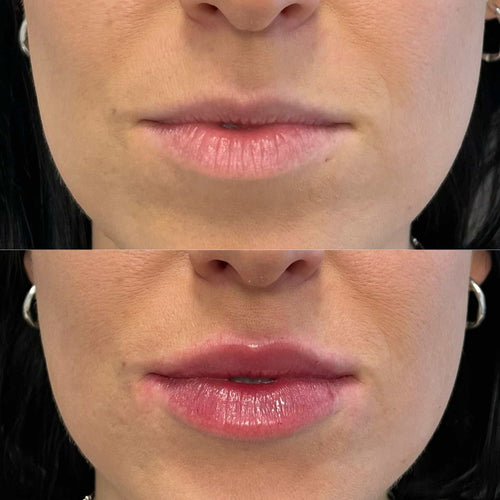CBD GUMMIES
Why Are CBD Gummy Sweets So Popular In The UKNovember 7, 2025
Get Started with Dermal Fillers – Book with Dr. Laura Geige
Certain medical conditions can increase the risk of complications or make it unsafe to receive under-eye filler injections. It’s crucial for individuals considering this procedure to consult with a qualified dermatologist or plastic surgeon.
Here are some medical conditions that may preclude or necessitate extra caution when undergoing under-eye fillers:
**Active Skin Infections:**
Having an active infection in the treatment area or elsewhere on the face can increase the risk of spreading the infection. It’s important to treat any existing infections before considering filler injections.
**Autoimmune Diseases:**
Conditions like lupus, rheumatoid arthritis, and scleroderma can affect the body’s immune system and potentially cause complications with fillers.
Individuals with autoimmune diseases should discuss the risks and benefits with their doctor.
**Bleeding Disorders:**
People with bleeding disorders or taking blood thinners may be more prone to bruising and swelling after filler injections. Careful consideration and possibly medication adjustments are needed in these cases.
**Pregnancy and Breastfeeding:**
The safety of fillers during pregnancy and breastfeeding is not fully established. It’s generally recommended to avoid injectables during these times.
**Rosacea or Eczema:**
These skin conditions can be aggravated by filler injections, potentially leading to flare-ups.
**Allergies to Lidocaine or Other Ingredients:**
Filler products often contain lidocaine (a local anesthetic) and other ingredients. Anyone with known allergies to these substances should inform their doctor.
**Unrealistic Expectations:** It’s important to have realistic expectations about the results of under-eye fillers. They can help improve mild to moderate under-eye hollows, but they cannot completely eliminate wrinkles or create a dramatic change in facial structure.
Remember: Always consult with a qualified medical professional for personalized advice regarding your health and any cosmetic procedures you are considering.

While under-eye filler can be a great option for addressing wrinkles and hollowness, it’s crucial to consider potential risks and contraindications before undergoing the procedure.
One such contraindication is an active herpes simplex virus (HSV) outbreak in the treatment area.
The risk of introducing HSV into the filler during injection is a serious concern, potentially leading to complications like infection, inflammation, or even viral transmission.
Therefore, it’s essential for individuals with a history of recurrent herpes to ensure their outbreaks are under control before considering any cosmetic procedures involving injections around the eyes. This typically involves consulting with a dermatologist who can assess the risk and recommend appropriate preventive measures.
Specifically, pregnant or breastfeeding women should exercise extra caution when considering under-eye fillers.
While there is limited research on the safety of these injectables during pregnancy and lactation, it’s generally advisable to avoid them until after breastfeeding is complete. This precautionary approach minimizes any potential risks to the developing fetus or infant.
The decision to get under-eye fillers ultimately lies with the individual in consultation with their healthcare provider.
However, understanding potential complications and contraindications, such as active HSV outbreaks and pregnancy/breastfeeding, is crucial for making an informed and safe choice.
Certain medications can increase risks for both the mother and fetus during pregnancy. It’s crucial for pregnant women to consult their doctor about all medications, including over-the-counter drugs and supplements.
Schedule Your Dermal Filler Appointment with Dr. Laura Geige Today
Here are some medication categories that pose particular risks during pregnancy:
*
Retinoids (Vitamin A Derivatives): These can cause serious birth defects, including heart problems, facial abnormalities, and intellectual disabilities. Examples include Accutane (isotretinoin) and other retinoid medications. It’s vital to avoid these medications during pregnancy and for several months before conception.
*
Antibiotics: While some antibiotics are safe during pregnancy, others can have negative effects on the fetus. For example, tetracycline antibiotics can stain a baby’s teeth and bones.
Arrange Your Dermal Filler Session with Dr. Laura Geige
*
Anticonvulsants (Seizure Medications): Some anticonvulsants, such as valproic acid, can increase the risk of birth defects, including neural tube defects like spina bifida.
*
Anticoagulants (Blood Thinners): These medications can increase the risk of bleeding in both mother and fetus.
*
Hormonal Medications: Hormonal drugs like birth control pills or hormone replacement therapy should be discussed with a doctor as some may have risks during pregnancy.
**Important Notes:**
*
This list is not exhaustive, and there are many other medications that could potentially harm a fetus.
*
It is essential for women who are pregnant or planning to become pregnant to consult with their doctor about all medications they are taking.
Made by Penny Canniant Bye Bye Belly Blog Made by Penny
WhatsApp us

0